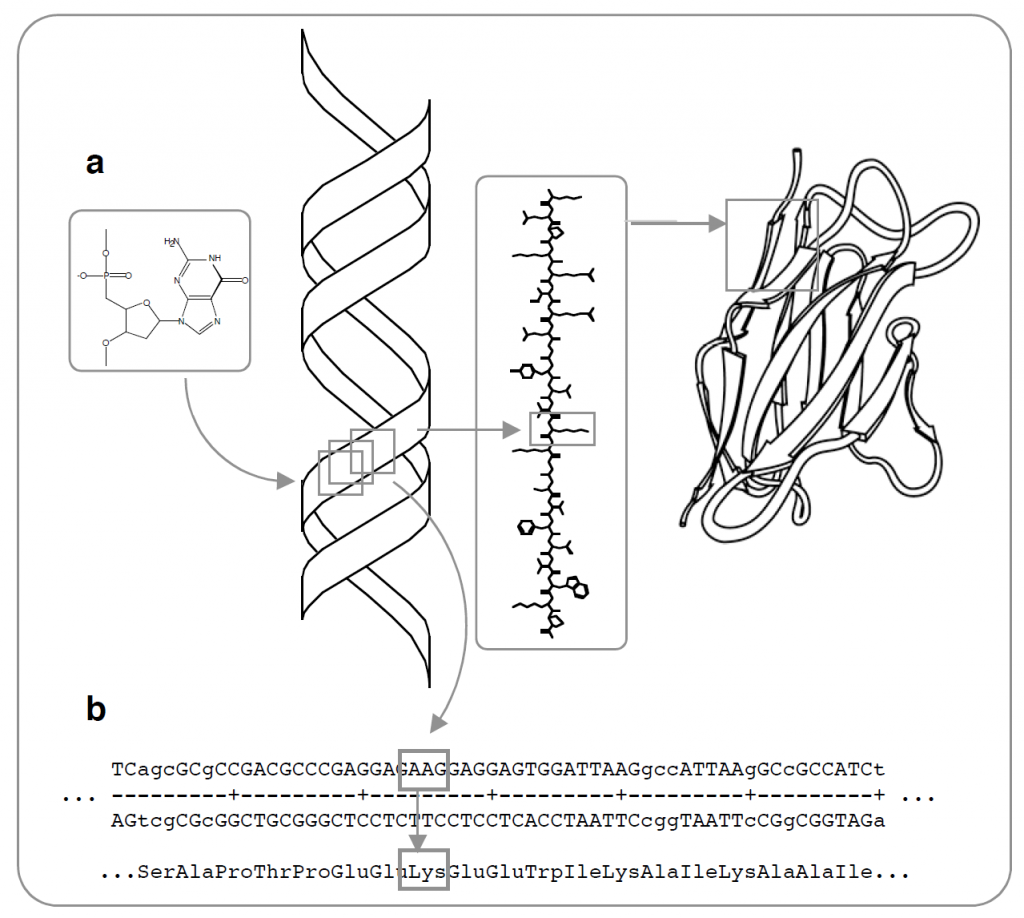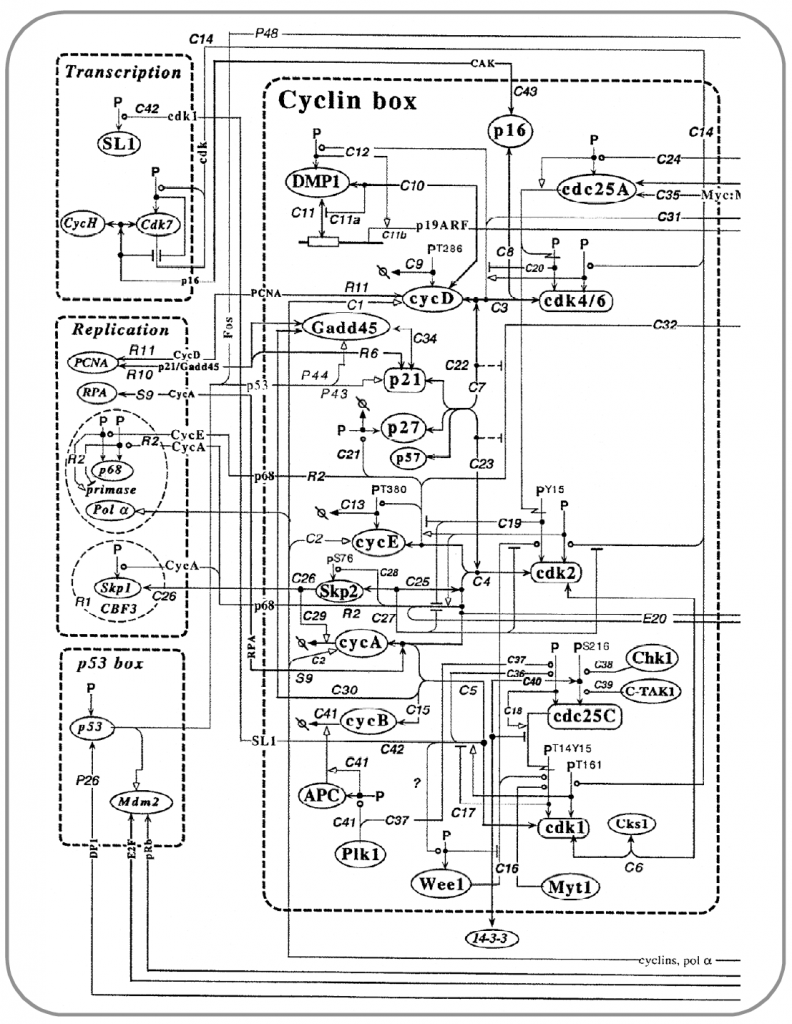An interdepartmental, undergraduate Specialist Program at the University of Toronto, jointly sponsored by the Departments of Biochemistry, Cell & Systems Biology, Computer Science, Ecology & Evolutionary Biology, and Molecular Genetics
What is the single most important scientific advance of the last century? It could be the invention of the computer, the success story of information science. Or it could be decoding the molecular basis of life. While these two advances seem completely different, they are, in fact, intimately related. In principle, life is an expression of pure information, encoded in physical molecules. The more we discover about the details, the more we find that molecular biology is an information science as much as it is a physical science.

Molecule and Information: DNA is a chemical substance that directs the synthesis of polypeptides; these spontaneously self-organize to the molecular machines that make life possible. The sequence of DNA defines the synthesis, just as letters in this text carry its meaning.
Genome sequencing, transcriptome analysis, proteomics and the study of cellular “systems” have given us breathtaking insights into the inner workings of biological function at the molecular level. However, a deep understanding of the complex organization of the cell and the interaction of its components has yet to be achieved. Substantial further progress is needed to make our science predictive, to fulfil the promises of “post-genomic” biology.

A schematic of cellular components involved in replication and their interactions. This type of model may be an approach towards computational prediction of biological processes.
Bioinformatics builds the toolbox of this science. We design methods that make biological information computable – we abstract properties of molecules, cellular systems and biological organisms, we build large computer systems to efficiently store and manage the very large volumes of data that are being accumulated in our laboratories, we support sensitive analyses and discover significant associations with sophisticated tools.
Computational biology is bioinformatics’ goal: we hope to advance our understanding of life through computational analysis, modeling, and prediction. The modeling of relationships, the analysis of theoretical abstractions, such as graphs, networks and systems, and their integration into computational models will lead us to a better understanding of life in its molecular detail. The dream we pursue is to explain life, and to provide the insights we need for biotechnology and molecular medicine.
Biological Data Analysis in Your Career
Biotechnology industry professionals see three major needs: biological analysts, who are involved in experimental work and trained in bioinformatics applications, software engineers with enough domain knowledge to be able to support method- and database integration, and the true generalist with enough skills in both areas to develop new methods and original, innovative research strategies. It is the rare, latter individual who is also most highly sought in the academic sector and the BCB Program’s goal is to provide in-depth training for such generalists. Graduates of the program would typically pursue graduate studies in any of the participating departments: Computer Science, Biochemistry, Cell & Systems Biology, Ecology & Evolutionary Biology, or Molecular Genetics. Their professional careers may span a wide range of opportunities, including academic research, clinical medicine, drug development, agrotechnology or even patent law.
What the Program Offers
The Bioinformatics and Computational Biology Specialist Program provides a balance between computer science, mathematics and statistics, and biochemistry, molecular and cellular biology and genetics. The Program leaves ample space to add advanced courses in Computer Science or Life Science specializations, to prepare for graduate studies, and perhaps fulfill the requirements for a Major in those programs, in parallel with a BCB Specialization. The BCB Program emphasizes research experience: in fact almost a sixth of the required course credits are hands-on project courses in one of the University’s many laboratories. The unique concentration of scientists in the field, a thriving landscape of graduate and postgraduate research, the Collaborative Graduate Specialization in Bioinformatics and Genome Biology, and numerous advanced research opportunities offer many, many opportunities to advance your own academic career.
Who We Are Looking For
If you would like to become part of one of science’s greatest adventures, if you are looking for a challenging program in an outstanding academic environment, if you are exceptionally motivated and committed to excellence, we would like to hear from you. Students are advised that the very rigorous courses that constitute the Program, the very limited overlap in course material between the theory-centric and the biology-centric courses, and the different academic cultures in the life- and computer sciences, make this Program suitable only for the academically strongest and most highly motivated students on campus.
Effective March 1, 2020, the BCB program has changed to a “limited” POSt, with selection based on the average of BIO130H1 plus best of CSC108H1 or CSC148H1 OR the average of BIO230H1 and CSC236H1. The maximum cohort size is 30. BCB students will have priority enrollment access for CSC courses if admitted to the BCB program.
Curriculum: please refer to the Curriculum page for more information about the courses required in this POst.
Program Admission: please refer to the Program Admission page for more information on how to apply for this POst.
Contact for Further Information
Please e-mail Melissa Casco (BCB Program Administrator) if you have questions about applying to this undergraduate specialist program.
